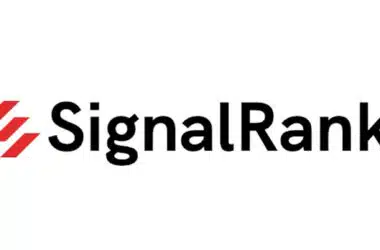Fintech refers to finance technology. We have covered what this means extensively in previous posts. The fintech revolution is what we are collectively going through, there are many fintech applications and solutions which have been adopted by the conventional financial system, as these applications and solutions help the financial system improve its efficiency.
There are however many applications that are seen as incompatible or in conflict with the financial system. Blockchain is one such technology within the sphere of fintech that for a long time and is still to this day seen as directly in conflict with the conventional system. Why?
Because blockchain is:
- Immutable
- Decentralized
- Virtually unhackable
- Faster
The reason why blockchain was and is still seen to be in conflict is its decentralized nature. The conventional financial system is centralized to its core. Every country has a Central Bank that overlooks the finance and economy, Central banks decide how much currency to supply in the market, they determine the interest rates and thus the level of economic activity in the market.
Blockchain is decentralized in its nature and thus directly in conflict with the centralized banking system. This is one main reason why cryptocurrencies have not become a medium of exchange, instead, they have now become a store of value. Why? Simply because no decentralized currency can be allowed to exist in a centralized monetary system.
This feature of blockchain impeded its adoption but the recent developments in the fintech industry have shown that blockchain can work as a protocol, allowing other applications and solutions to develop on it. It can very much work with a centralized system, although this reduces the potential of blockchain it nevertheless paves the way for adoption.
One major issue that many centralized banking authorities still have with blockchain is that since no monetary authority sits atop to regulate it, there is a lot of room for illicit financial activities like money laundering and terror financing etc.
This happens because blockchain is firstly decentralized and secondly it is not regulated like other financial services. This lack of regulation acts as a loophole for criminals to exploit. This is one reason why cryptocurrencies are used very frequently to purchase goods and services of the dark webs and for terror financing.
There is a way to control this illicit use of blockchain and every new fintech application and that is called RegTech.
What is RegTech?
Regtech is a shortened version of Regulatory Technology. It comes within the broader sphere of fintech. It refers to the management of the regulatory processes in the financial industry through the usage of technology.
If you pause and think, then it makes sense to regulate fintech through tech-based methods. Using the old methods of devising a regulatory policy, which contained a set of rules and then relying upon it to work is an old practice, that is no longer compatible with fintech.
Regtech is a community of established companies that focus on the usage of cloud computing to help businesses comply with the relevant and applicable regulations. Cloud computing is one of the technologies or components of fintech that have allowed fintech to develop in a cost-effective manner.
Cloud computing allows enterprises to use cloud-based software and store their data on the cloud so that they can access it from anywhere and at any time. Famous applications such as Quickbooks, Sage and Crunch have all adopted the cloud to render their services to their clients.
Regtech not only uses the cloud but also uses artificial intelligence, machine learning and big data to reduce the risk for companies. The primary risks for companies operating in the fintech sector are the risk of data theft and the risk of their data or services being used for illicit activities.
Regtech uses the latest available technologies to monitor and trace online transactions in real-time. For instance, if a cryptocurrency exchange employs regtech to prevent their platform from being used for money laundering. Then that regtech company will look for indicators that will suggest that the funds being loaded on the exchange are not coming through a proper banking channel. Any such transaction would be marked and forwarded to the relevant institution for further analysis and scrutiny. In this manner, regtech allows companies to minimise their risk and increase their compliance.
Regtech companies, therefore, form a link between the fintech companies and the regulatory authorities or financial institutions.
Another example where the regtech company has a lot of use is the banking sector. Banks generate unimaginable amounts of data every day and sifting through all that data is simply not practical for any bank. Regtech companies use their technological edge to sift through large volumes of data, analyse them and then produce a simplified report, indicating areas with varying risk levels to the bank.
Regtech can have further specifications, which means that every company in the regtech sector will have its own niche. Popular specifications are
- Employee surveillance
- Compliance data management
- Fraud management
- Audit trail
Regtech is a major area in fintech, think of it as the lifeblood of fintech because as fintech develops further, the opportunities and areas in which regtech can develop will also increase. Look at it this way, as long as the concept of society has been there, so has there been crime. Now that the current and future global society is becoming increasingly tech-based, the crime of the future will also happen in the tech space, using the technological loopholes and lapses. Thus, the need for regtech to stay ahead of the game will always be there.
















Recent Comments